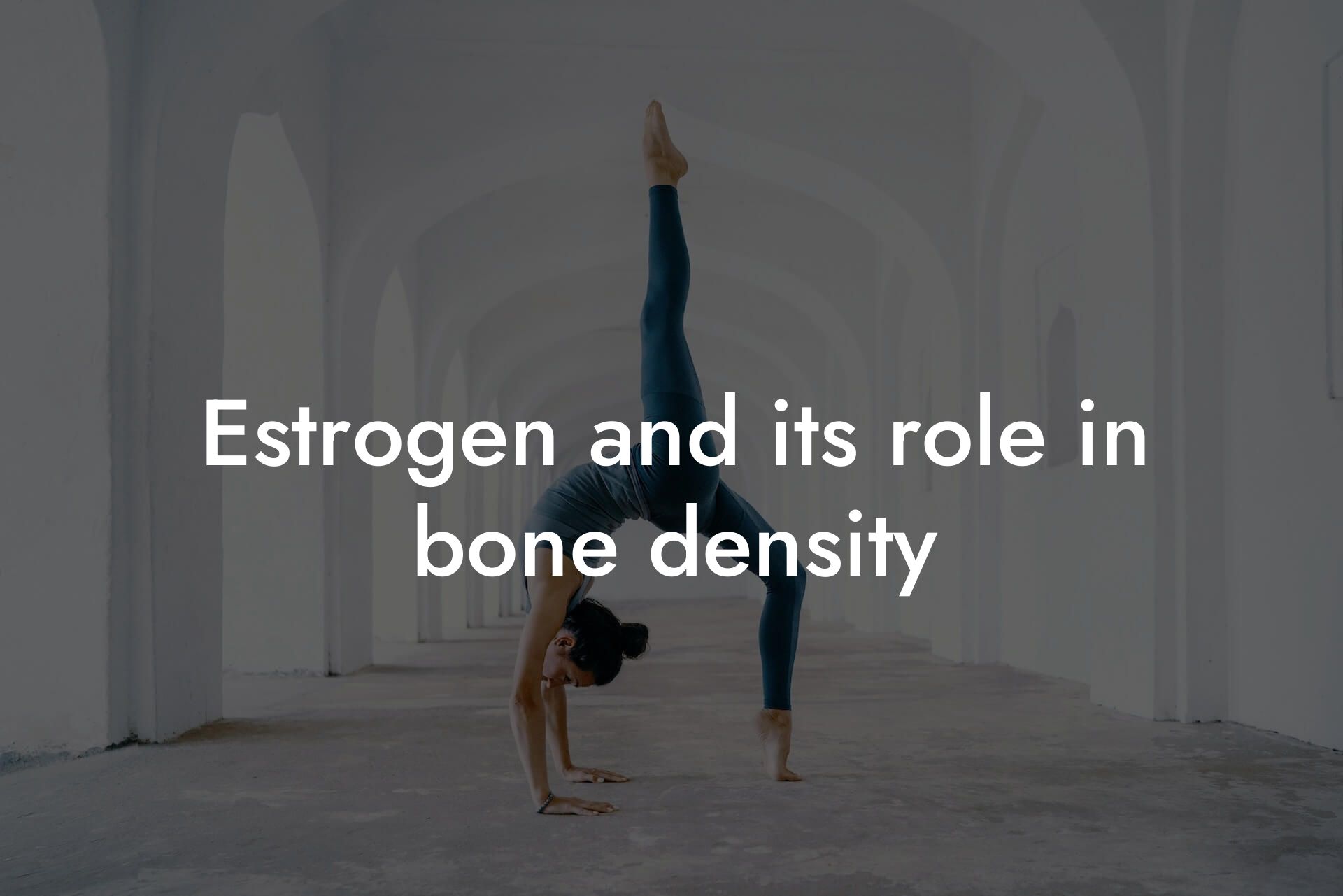As high-earning professionals, you understand the importance of maintaining a healthy and fit physique. A well-balanced body composition not only boosts confidence but also enhances overall well-being. However, many individuals struggle to achieve their desired body shape and size, despite following a strict diet and exercise regimen. One often overlooked factor that can significantly impact body composition is thyroid health. In this article, we will delve into the complex relationship between thyroid health and body composition, and explore how optimizing thyroid function can help you achieve your physical goals.
Table of Contents
- The Thyroid Gland: A Brief Overview
- How Thyroid Hormones Affect Body Composition
- Hypothyroidism and Body Composition
- Hyperthyroidism and Body Composition
- The Impact of Thyroid Health on Body Fat Distribution
- The Role of Thyroid Health in Muscle Growth and Maintenance
- How to Optimize Thyroid Health for Better Body Composition
- Frequently Asked Questions
The Thyroid Gland: A Brief Overview
The thyroid gland is a small, butterfly-shaped gland located in the neck, responsible for producing hormones that regulate various bodily functions, including metabolism, growth, and development. The two main hormones produced by the thyroid gland are triiodothyronine (T3) and thyroxine (T4). These hormones play a crucial role in controlling the rate at which the body burns calories, influencing body weight, and composition.
How Thyroid Hormones Affect Body Composition
Thyroid hormones have a profound impact on body composition by regulating metabolic rate, fat burning, and muscle growth. When thyroid hormone levels are optimal, the body is able to efficiently burn fat for energy, build and maintain muscle mass, and regulate hunger and satiety hormones. Conversely, an underactive or overactive thyroid gland can lead to significant changes in body composition.
Hypothyroidism and Body Composition
Hypothyroidism, or an underactive thyroid gland, is a condition in which the thyroid gland fails to produce sufficient amounts of T3 and T4. This can lead to a range of symptoms, including weight gain, fatigue, and muscle weakness. When it comes to body composition, hypothyroidism can cause:
- Weight gain, particularly in the midsection
- Increased body fat percentage
- Loss of muscle mass
- Decreased metabolism
- Increased hunger and cravings for unhealthy foods
Hyperthyroidism and Body Composition
Hyperthyroidism, or an overactive thyroid gland, is a condition in which the thyroid gland produces excessive amounts of T3 and T4. This can lead to a range of symptoms, including weight loss, anxiety, and rapid heartbeat. When it comes to body composition, hyperthyroidism can cause:
- Unintended weight loss
- Loss of muscle mass
- Increased body fat percentage
- Decreased bone density
- Increased hunger and cravings for unhealthy foods
The Impact of Thyroid Health on Body Fat Distribution
Thyroid hormones also play a significant role in body fat distribution. Research has shown that hypothyroidism can lead to increased visceral fat storage, which is associated with a higher risk of chronic diseases such as type 2 diabetes and cardiovascular disease. On the other hand, hyperthyroidism can cause a decrease in visceral fat storage, but may also lead to a loss of muscle mass and bone density.
The Role of Thyroid Health in Muscle Growth and Maintenance
Thyroid hormones are essential for muscle growth and maintenance. T3, in particular, plays a crucial role in regulating muscle protein synthesis, which is the process by which the body builds new muscle tissue. When thyroid hormone levels are optimal, the body is able to efficiently build and maintain muscle mass. Conversely, hypothyroidism can lead to muscle wasting and weakness, while hyperthyroidism can cause muscle loss and decreased muscle strength.
How to Optimize Thyroid Health for Better Body Composition
Optimizing thyroid health is essential for achieving and maintaining a healthy body composition. Here are some tips to support thyroid function:
- Get enough sleep: Aim for 7-8 hours of sleep per night to support thyroid function
- Exercise regularly: Engage in moderate-intensity exercise, such as yoga or walking, to support thyroid function
- Eat a balanced diet: Focus on whole, nutrient-dense foods, including lean proteins, healthy fats, and complex carbohydrates
- Manage stress: Engage in stress-reducing activities, such as meditation or deep breathing, to support thyroid function
- Get tested: Regularly test your thyroid hormone levels to ensure optimal function
In conclusion, thyroid health plays a critical role in body composition. Both hypothyroidism and hyperthyroidism can lead to significant changes in body fat distribution, muscle growth, and overall health. By understanding the complex relationship between thyroid health and body composition, and taking steps to optimize thyroid function, you can achieve a healthier, more balanced body composition. At Tano Performance Group, we offer comprehensive body assessments using our state-of-the-art DEXA machine, providing you with the information you need to take your physical health to the next level.
Frequently Asked Questions
What is the thyroid gland and what does it do?
The thyroid gland is a small, butterfly-shaped gland located in the neck, just below the larynx. It plays a vital role in regulating metabolism, growth, and development by producing hormones that control the rate at which the body burns calories. The thyroid gland produces two main hormones: triiodothyronine (T3) and thyroxine (T4), which are essential for maintaining a healthy body composition.
How does thyroid health affect body composition?
Thyroid health has a significant impact on body composition. When the thyroid gland is functioning properly, it helps to regulate metabolism, which in turn affects body weight, body fat percentage, and muscle mass. An underactive thyroid gland (hypothyroidism) can lead to weight gain, fatigue, and decreased muscle mass, while an overactive thyroid gland (hyperthyroidism) can cause weight loss, anxiety, and increased muscle wasting.
What are the symptoms of hypothyroidism?
The symptoms of hypothyroidism can vary from person to person, but common symptoms include weight gain, fatigue, dry skin, hair loss, cold intolerance, constipation, depression, and muscle weakness. If left untreated, hypothyroidism can lead to more severe health problems, such as heart disease, infertility, and osteoporosis.
What are the symptoms of hyperthyroidism?
The symptoms of hyperthyroidism can also vary, but common symptoms include weight loss, anxiety, rapid heartbeat, tremors, heat intolerance, and changes in appetite. In severe cases, hyperthyroidism can lead to more serious health problems, such as atrial fibrillation, osteoporosis, and thyroid storm.
How does hypothyroidism affect body fat percentage?
Hypothyroidism can cause an increase in body fat percentage due to a slowed metabolism. When the thyroid gland is not producing enough hormones, the body's metabolic rate decreases, leading to weight gain and increased body fat. This can be particularly challenging for individuals who are trying to lose weight or maintain a healthy body composition.
How does hyperthyroidism affect body fat percentage?
Hyperthyroidism, on the other hand, can cause a decrease in body fat percentage due to an increased metabolic rate. When the thyroid gland is producing too many hormones, the body's metabolic rate increases, leading to weight loss and decreased body fat. However, this weight loss is often accompanied by muscle wasting, which can be detrimental to overall health.
Can thyroid health affect muscle mass?
Yes, thyroid health can affect muscle mass. Hypothyroidism can cause muscle weakness and wasting, while hyperthyroidism can cause muscle loss and weakness. This is because thyroid hormones play a role in regulating muscle growth and development. When thyroid hormone levels are imbalanced, muscle mass can be affected.
How does thyroid health affect bone density?
Thyroid health can also affect bone density. Hypothyroidism can cause a decrease in bone density, leading to an increased risk of osteoporosis and fractures. Hyperthyroidism, on the other hand, can cause an increase in bone turnover, leading to a loss of bone density over time.
What is the relationship between thyroid health and leptin?
Leptin is a hormone that plays a role in regulating energy balance and body weight. Thyroid hormones and leptin are closely linked, and an imbalance in one can affect the other. Hypothyroidism can lead to decreased leptin levels, which can contribute to weight gain and metabolic slowdown.
How does thyroid health affect insulin sensitivity?
Thyroid health can also affect insulin sensitivity. Hypothyroidism can lead to decreased insulin sensitivity, which can increase the risk of developing type 2 diabetes. Hyperthyroidism, on the other hand, can improve insulin sensitivity, but this is often accompanied by other negative health effects.
Can thyroid health affect appetite?
Yes, thyroid health can affect appetite. Hypothyroidism can cause an increase in appetite, leading to weight gain, while hyperthyroidism can cause a decrease in appetite, leading to weight loss.
How does thyroid health affect digestion?
Thyroid health can also affect digestion. Hypothyroidism can cause constipation, bloating, and other digestive problems, while hyperthyroidism can cause diarrhea, nausea, and vomiting.
What is the relationship between thyroid health and cortisol?
Cortisol is a hormone produced by the adrenal glands that plays a role in regulating stress response. Thyroid hormones and cortisol are closely linked, and an imbalance in one can affect the other. Hypothyroidism can lead to increased cortisol levels, which can contribute to weight gain, fatigue, and other health problems.
How does thyroid health affect mood?
Thyroid health can also affect mood. Hypothyroidism can cause depression, anxiety, and mood swings, while hyperthyroidism can cause anxiety, irritability, and mood swings.
Can thyroid health affect sleep?
Yes, thyroid health can affect sleep. Hypothyroidism can cause fatigue, lethargy, and sleep disturbances, while hyperthyroidism can cause insomnia, anxiety, and other sleep problems.
How does thyroid health affect energy levels?
Thyroid health can significantly affect energy levels. Hypothyroidism can cause fatigue, lethargy, and decreased energy, while hyperthyroidism can cause increased energy, anxiety, and restlessness.
What is the relationship between thyroid health and adrenal function?
The thyroid gland and adrenal glands are closely linked, and an imbalance in one can affect the other. Hypothyroidism can lead to adrenal fatigue, while hyperthyroidism can lead to adrenal hyperfunction.
How does thyroid health affect hormone balance?
Thyroid health can affect hormone balance by influencing the production and regulation of other hormones, including insulin, leptin, cortisol, and estrogen. An imbalance in thyroid hormone levels can lead to a cascade of hormonal imbalances throughout the body.
Can thyroid health affect fertility?
Yes, thyroid health can affect fertility. Hypothyroidism can cause infertility, miscarriage, and other reproductive problems, while hyperthyroidism can cause irregular menstrual cycles, infertility, and other reproductive problems.
How does thyroid health affect skin health?
Thyroid health can affect skin health. Hypothyroidism can cause dry skin, hair loss, and other skin problems, while hyperthyroidism can cause skin thinning, hair loss, and other skin problems.
What is the relationship between thyroid health and cardiovascular health?
Thyroid health can affect cardiovascular health. Hypothyroidism can increase the risk of heart disease, high cholesterol, and high blood pressure, while hyperthyroidism can increase the risk of atrial fibrillation, heart failure, and other cardiovascular problems.
How does thyroid health affect cognitive function?
Thyroid health can affect cognitive function. Hypothyroidism can cause memory loss, decreased concentration, and other cognitive problems, while hyperthyroidism can cause anxiety, irritability, and other cognitive problems.
What are the treatment options for hypothyroidism?
The treatment options for hypothyroidism typically involve thyroid hormone replacement therapy, which can be in the form of synthetic or natural hormones. Lifestyle changes, such as diet and exercise, can also help to manage symptoms and improve overall health.
What are the treatment options for hyperthyroidism?
The treatment options for hyperthyroidism typically involve medication to reduce thyroid hormone production, radioactive iodine therapy to destroy part of the thyroid gland, or surgery to remove part or all of the thyroid gland. Lifestyle changes, such as diet and exercise, can also help to manage symptoms and improve overall health.
Here are some related articles you might love...
- The impact of menopause on body composition
- Estrogen and its role in bone density
- Adrenal fatigue: Signs and solutions
- Cortisol and its effects on fat storage
- Testosterone boosters: Do they work?
- Hormonal imbalances that impact muscle growth
- Hormone replacement therapy and its effects on body fat
- The role of insulin in body fat regulation
- How sleep affects hormone levels and body composition
Zak Faulkner
Zak Faulkner is a leading authority in the realm of physical health and body composition analysis, with over 15 years of experience helping professionals optimise their fitness and well-being. As one the experts behind Tano Performance Group, Zak has dedicated his career to providing in-depth, science-backed insights that empower clients to elevate their physical performance and overall health.
With extensive knowledge of DEXA technology, Zak specializes in delivering comprehensive body assessments that offer precise data on body fat, muscle mass, bone density, and overall physique. His expertise enables individuals to make informed decisions and achieve their fitness goals with accuracy and confidence. Zak’s approach is rooted in a deep understanding of human physiology, combined with a passion for helping clients unlock their full potential through personalised strategies.
Over the years, Zak has earned a reputation for his commitment to excellence, precision, and client-focused service. His guidance is trusted by top professionals who demand the best when it comes to their health. Whether advising on fitness programs, nutritional strategies, or long-term wellness plans, Zak Faulkner’s insights are a valuable resource for anyone serious about taking their health and fitness to the next level.
At Tano Performance Group, Zak continues to lead our Content Team revolutionising how professionals approach their physical health, offering unparalleled expertise that drives real results.




